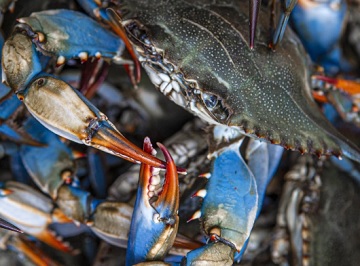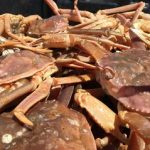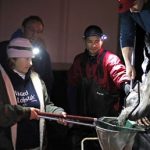‘99.7% efficient after over 400 hours of use’

Maryland is already famous for its crab, but researchers at the University of Maryland are looking to give that distinction an entirely different meaning. A team of scientists at the school’s Center for Materials Innovation found that crustaceans like crabs and lobsters contain a chemical in their shells called chitin, which can be used to power batteries when combined with zinc. Crustacean shells packed with this chemical are typically thrown out en masse by restaurants that have no other use for them. But researchers believe this waste could serve as a powerful resource in the search for more sustainable batteries. >click to read< 08:11












































Leave a Reply